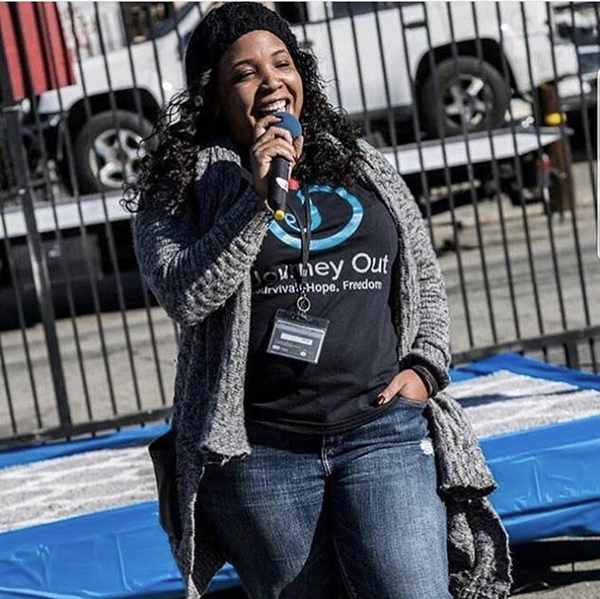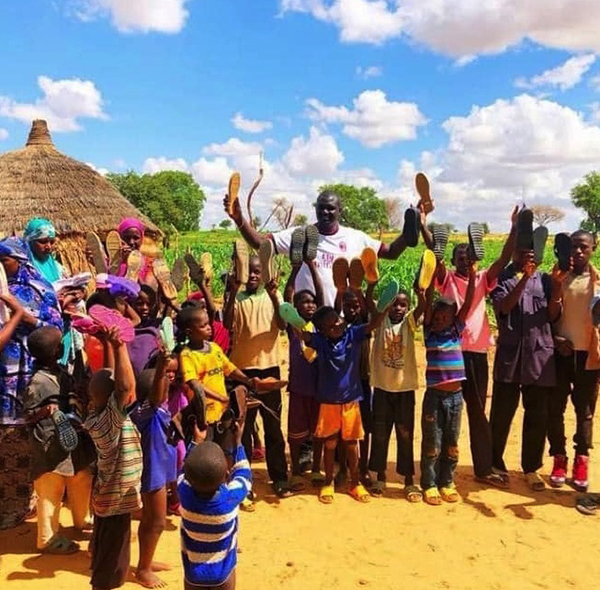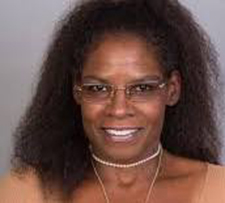MAKING A DIFFERENCE
By Darlene Donloe
Contributing Writer
Black and brown girls as young as 13 are falling victim to the dark underbelly of Los Angeles’ sex-trafficking trade at an alarming rate, according to Journey Out, a Los Angeles-based nonprofit that helps adults exit sex trafficking.
The organization, which is leading the fight for the freedom and survival of all those whose lives have been destroyed by sex trafficking or commercial sexual exploitation, reports that 92% of girls in juvenile hall who have identified as trafficking victims, were African American.
“The stats are staggering,” said Nayeli May, executive director of Journey Out. “The majority of the girls working, over 89% of them, are women of color. One reason it is women of color is the adult-ification of women of color.
“It’s very prevalent in our communities that we have let happen. It’s the hyper-sexualization of women of color. Unfortunately, girls of color are treated differently.”
According to May, 59% of all prostitution arrests under 18 were Black children.”
Part of Journey Out’s operation is to send out crisis response teams to the prostitution tracks in various areas to discreetly advise those being exploited about its programs and how the organization can help them get “out of the life.”
The female gender is not the only one at risk, according to May.
“Boys and men are also exploited,” she said. “In the LGBTQ community, that’s huge. Everyone at this point is vulnerable. It’s for sure happening. While the average age is 13, they can continue into ‘the life’ until their 40s.”
May said a trafficker can be anyone.
“A trafficker can be a woman, a madam, anyone,” she said. “Most of the time the girls are trafficked by someone they know or someone within their own community, a family member, a person they once had a relationship with. There has to be a level of trust for it to happen. It’s a process.”
The mission of the organization is to help victims of commercial sexual exploitation and sex trafficking leave a life of abuse and violence, overcome their fears, and empower them to reach their full potential and achieve their goals.
In addition to its Direct Street Outreach programs, Journey Out has Domestic Minor Sex Trafficking Prevention programs, and Drop-in Center and Empowerment Programs.
May explained why the organization is called Journey Out.
“When a person is working in the life, we are here as part of their journey as they get out of ‘the life,’” she said. “Every person is on their own journey. We are here to support them as they are exiting the life.”
Fully committed to and believing in the resilience of survivors and marginalized populations, Journey Out maintains a diverse staff, half of whom are survivors themselves.
May said this creates a powerful model and bond between the staff and clients, who are able to walk and grow alongside someone who can relate to their lived experience on a deeper level.
When it comes to getting someone out of “the life,” May said every situation is different.
“It’s about coming up with a plan for them,” she said. “They may call the hotline. Then, we come up with a plan of where are you? Can we pick you up? It varies.
“When they feel ready to get out of ‘the life,’ they will call someone. We have had clients who just fled with nothing. Just run away. We work closely with law enforcement. We want them to know this person is a victim.
“We come up with a safety plan. It’s not always clean cut. A person may leave and maybe they still feel scared and go back. Recidivism happens.”
Journey Out provides emergency housing, food, hygiene and any basic resource victims of trafficking might need.
“We help them with anything, including trying to reunify them with their family, or with their children, going back home, even expunging a record,” May said.
Journey Out also has a diversion program.
“Instead of being arrested, if they are identified as sex trafficking — they can learn about how to exit the life and the resources,” May said. “They can come to us and seek help.”
According to May who has worked in the nonprofit arena for 18 years, most people have no idea just how prevalent sex trafficking is in their own backyard.
“What’s going on is eye-opening,” said May, who studied organizational leadership at Woodbury University. “A lot of people don’t talk about sex trafficking. They think it happens in other countries.
“People need to know its here. It’s in L.A. It happens more often than people realize. This is very real and it happens all the time.”
May said it’s happening to the children in the community and the adults as well.
“The other part is that a lot of people will view sex trafficking like what you see in the movies,” she said. “That’s not what’s going on. Sex trafficking — they are forced into sexual exploitation. Some are having to work on the street with forced prostitution or some form of pornography. It happens a lot. It happens everywhere.”
When COVID-19 hit Los Angeles, May said prostitution and sex-trafficking activity grew.
“It definitely increased,” she said. “The stats changed and we started seeing more people on the tracks. If bars close and strip clubs close, the women who were working those areas are now working on the streets. We know for a fact that our communities have been most impacted by COVID. COVID was the perfect recipe for disaster. It has grown. We don’t have the full specs yet.”
In 2020, May said Journey Out served 315 clients. Of those, 87% were people of color, more than 90% had been subjected to child sexual abuse or incest, and 12% are white.
“A lot of the trafficking varies,” May said. “Some are forced into prostitution. Starting from children. It all looks different. Some people are B-Girls working in bars, doing prostitution, or working in strip clubs. It’s both force and coercion. Black girls and brown girls are a vulnerable population.”
May, who became executive director in 2020, is pleased with the work her organization is accomplishing.
“I’m proud that we support individuals where they are in their journey,” May said. “We help them with their exit. On our team, some are survivors themselves. That understanding goes a long way. They keep it real.
“We’re not here to judge. We are here to help when they are ready. It’s when they are ready, not when we are ready.”
May said there was a time when the law just focused on the women involved in prostitution and not the men who are customers. She said things have changed.
“There was a time the majority of the focus was on the woman,” May said. “We’ve never viewed them as a victim. We viewed them as criminals. In L.A., they are going after the johns, traffickers or pimps. It’s hard to do.
“One reason is many people are terrified to testify against the person hurting them. Sometimes that trafficker is helping the family or knows where they live. It’s incredibly intimidating to testify against them.”
The sex-trafficking industry can be intense. At the end of the day, May admitted the work can be emotionally draining.
“You have to have a moment,” she said. “Reflect afterward and take a quiet moment for yourself. I check in with myself. It comes with time working in the field. You have to build a stronger shell. That’s hard to teach and do.”
“Making a Difference” is a weekly feature profiling organizations that are serving their communities. To propose a “Making a Difference” profile, send an email to newsroom@wavepublication.com.
Darlene Donloe is a freelance reporter for Wave Newspapers who covers South Los Angeles. She can be reached at ddonloe@gmail.com.













